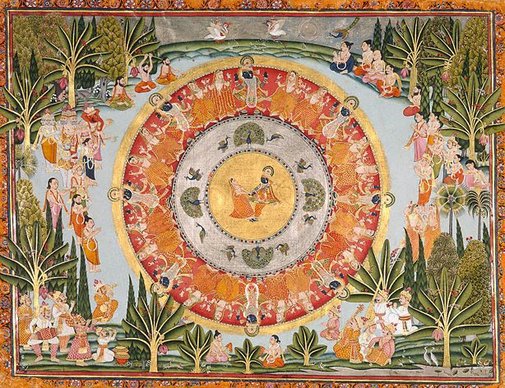About the Project
People relate to the world around them in innumerable ways. Often this relation takes the form of a response more than a preemptive attitude, a “response” composed of perception, affection, and action, whether recoiling in repulsion or horror, or reaching out in warmth. This is where gratitude comes in. “Tears of gratitude,” wrote the Zen Buddhist teacher Nakagawa Soen once in a haiku, “biting into a cucumber: the taste of what is true (dharma).”
Gratitude seems to us to designate a loosely coherent spectrum of responsive attitudes manifest by humans in their dealings with one another and the cosmos. These attitudes have been the object of serious study across many traditions for many centuries in the distinct philosophical and normative idioms of those traditions. For some, gratitude brings into focus our sociality; for others, it also involves our participation in a world of more than empirical presence. Either way, gratitude is a phenomenon that has roots in worlds normatively experienced, speaking to realities and relationships that more narrowly empirical approaches can have a hard time incorporating. These realities include the fundamental structures, forces, and agencies that undergird the normative intelligibility of the cosmos, and the possibility, perhaps the necessity, that humans must somehow relate to them.
Historical traditions by no means speak with a unified voice as regards the nature or place of such gratitude. Some of them personalize the relationship of gratitude, so that one expresses gratitude to some divinity—as in Christianity, Judaism, Islam, and theistic Hinduism—or to some other maximally perfect being—like Buddhas or Jinas in Buddhism and Jainism respectively. Others insist that gratitude, while no less real, entails no interpersonal relationship at all, but is instead an orientation towards a non-personal reality which nonetheless solicits and deserves it; such traditions express gratitude not to a someone, but that such-and-so is the case. Others, such as certain Islamic traditions, suggest that it is the Deity who is primarily grateful, inviting a reciprocal response on the part of its creation; here, gratitude is primarily the work of non-human agents, in which humans are invited to participate.
Hence, while these traditions agree on the import of the questions that gratitude involves, that agreement sits alongside profound differences. These traditions are famously fractious, conceptually incommensurable, theologically irreconcilable, not infrequently ill-mannered toward one another. It might seem that, particularly on a topic so central to each, such traditions would not be a suitable site for seeking insights of value beyond the borders of those traditions. But we disagree: we propose that careful study of each of these traditions individually and all of them collectively, both in where they disagree and where they converge, uncovers important insights about the phenomenon of “gratitude,” broadly understood.
We wish to track how gratitude gains determinate shape and concrete reality when embedded in distinct and determinate traditions and when cast in those traditions’ distinct idioms. Gratitude may also, however, “spill over” the doctrinal boundaries of each tradition that cultivates it, in ways that both relativize the tradition’s command of its ideals and invigorate its prescription to its adherents to inhabit gratitude. We seek to explore how, thereby contouring our understanding of gratitude as a phenomenon explored in various traditions while seeking to illuminate the phenomenon of gratitude directly.

Our project is part of a larger collection of studies funded by the "Gratitude to God" project run out of Biola University and the John Templeton Foundation. We shall convene specialists in several traditions (particularly Christian, Confucian, Islamic, Hindu, and Buddhist traditions) using diverse methods to study the shape of gratitude across various genres within those traditions—philosophical, theological, literary, ritual, and scriptural.
Research Team
Sonam Kachru, University of Virginia
Charles Mathewes, University of Virginia
Jane Mikkelson, University of Virginia
Shankar Nair, University of Virginia
Graduate Student Researchers:
Michelle Bostic, University of Virginia
Rebekah Latour, University of Virginia
Ilma Qureshi, University of Virginia
